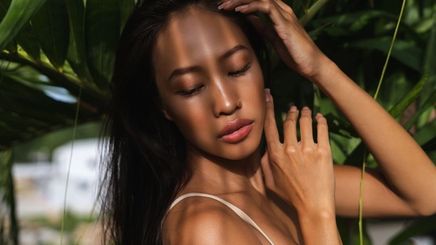
Have you ever been called an “exotic beauty” and felt weird about it? High-five, sister. You’re not alone.
The world has seemingly come a long way in celebrating different kinds of beauty. More beauty companies are catering to a wide range of skin colors, fashion labels are becoming more size-inclusive, and magazines are ditching heavy airbrushing. Despite all this progress, conversations about race in beauty still get murky.
Case in point: many still think that using “exotic” to describe one’s appearance is acceptable. Some even go as far as to say it’s a compliment. These people probably mean well, but one huge problem with the phrase “exotic beauty” is that it usually comes with racial or ethnic connotations.
It’s like hearing someone tell you, you're beautiful... for a Filipina. It feels back-handed because your appearance is being measured against (and ultimately deemed “less than”) more universally accepted beauty standards, i.e., Caucasian with blonde hair and blue eyes.
What Does “Exotic” Actually Mean?
A quick Google search for “exotic” will bring up these definitions: “interesting or exciting because of being unusual,” “of foreign origin or from far away,” or “an import.” Hey, don’t those phrases sound like descriptors for rare birds or tropical fruits? Yes, they do.
Therefore, whenever someone uses the phrase “exotic beauty” to describe another person, it feels reductive, objectifying, and alienating. After all, no one wants to be reduced to an amusing novelty.
Why "Exotic Beauty” is Not a Compliment
Ultimately, the phrase is anything but a compliment. Here’s why:
1. It’s a form of microaggression.
are exactly what their name suggests. They’re subtle (sometimes undetectable) forms of aggression, like everyday slights, insults, or putdowns. They can be either intentional or unintentional. Calling someone who’s part of an ethnic minority "exotic" can be demeaning, even if it's well-intentioned. While it may seem nice to say, “I love your facial features – they’re so exotic,” the subtext translates to a less flattering “You’re different” or “You don’t look like us.”
2. It comes with unwanted sexual connotations.
In the same way that the word “exotic” in “exotic dancer” alludes to sensuality and sultriness, the “exotic beauty” label can also be suggestive. Like someone thinks of you as a seductress on the prowl. Exoticism, after all, is a form of ethnic fetishization. This is evident in the way certain people fetishize Pinays, viewing us as sex objects and as “others” at the same time. When you think of it in this light, the phrase can also be equivalent to a catcall.
3. It’s not a validator.
Did you spot someone while you were out and thought they were beautiful? Just call them that, period. There’s no need to add a modifier that highlights how different or out of the ordinary they are. To be clear, “exotic” in itself is not a bad word. But to use it to explain away someone’s good looks is almost like saying that what they have isn’t real beauty at all. At the very least, it suggests that their appearance doesn’t deserve a simple “beautiful.”
Embracing Your Own Beauty
Looking for something new to add to your self-care ritual? Try the Dove Deeply Nourishing Body Wash: made with nourishing Nutrium Moisture™ technology, it’s designed to give you softer, smoother skin with every wash. It sinks 20 layers deep into the skin to help maintain its moisture barrier, taking care of you from the inside out. The best part? It’s suitable for all skin types and tones!
Suffice it to say, it’s time we shelf the term “exotic beauty” for good and start acknowledging all types of beauty as worthy and equal. But before you celebrate others, make sure you honor yourself first.